ʻDirect democracy is sometimes like an internet forumʼ
The Swiss approach voting with a refreshing “studious enthusiasm”, jokes Swiss cartoonist Patrick Chappatte. However, over the past 15 years direct democracy has become a weapon used by manipulators and populists, he warns.
Chappatte has been making readers laugh and think on both sides of the Atlantic for over 20 years, with regular contributions to The International New York Times and two Swiss dailies, Le Temps and Zurich’s Neue Zürcher Zeitung (NZZ)External link.
He recently moved with his family from Geneva to Los Angeles, where he works as a cartoonist and research fellow at the University of South California’s Annenberg school of journalism.
swissinfo.ch: Do you miss Switzerland now you’re living in LA?
Patrick Chappatte: No, let’s not exaggerate (laughs). I have been on the lookout for a place to buy proper Swiss Gruyère cheese here, as the American equivalent is a bit like chewing gum. But apart from that we don’t miss Switzerland. Switzerland is very present in all of us. You don’t have to be in Switzerland 24 hours a day, seven days a week to feel Swiss.
swissinfo.ch: Isn’t it tricky drawing Swiss-related political cartoons from abroad?
P.C.: It demands some mental gymnastics, as we are living on the west coast which feels a bit like the other side of the world.
In the long term it’s probably a bad thing, as I might become less aware of local Swiss issues, like being immersed day and night in discussions about the lump-sum taxation initiative.
But at the end of the day distance is interesting. I had a similar experience when I once lived for a couple of years in New York. That actually brought me much closer to the Swiss system, allowing me to come to terms with it.
swissinfo.ch: What do you mean?
P.C.: I managed to better understand the whole thing about consensus and search for compromise. I was 27, young, and impatient with the Swiss political system, which has its own pace. But I better understood things once I’d taken some distance.
The Swiss political system holds Switzerland together. That’s why it’s not very spectacular and everything takes time and requires plenty of agreement. You can’t take Switzerland for granted. There’s a whole machinery keeping it ticking over and sometimes helping it inch forward, or at least try to prevent it from slipping backwards.
swissinfo.ch: Justice Minister Simonetta Sommaruga was recently singing the praises of direct democracy saying, “On the bus, people constantly talk to me about it. They are very attached to this system”. Are you one of them?
P.C.: I’ve never taken the bus with Simonetta Sommaruga but if I saw her I’d spontaneously go and talk to her about direct democracy (laughs). We talk about it a lot abroad, as there is this need to have to explain the whole thing.
If you talk to a foreigner about direct democracy for an hour and they get it, then it means you’ve explained it badly. It’s a very peculiar system, which is unique. It’s tailor made for this odd multilingual federal state that is rather obscure.
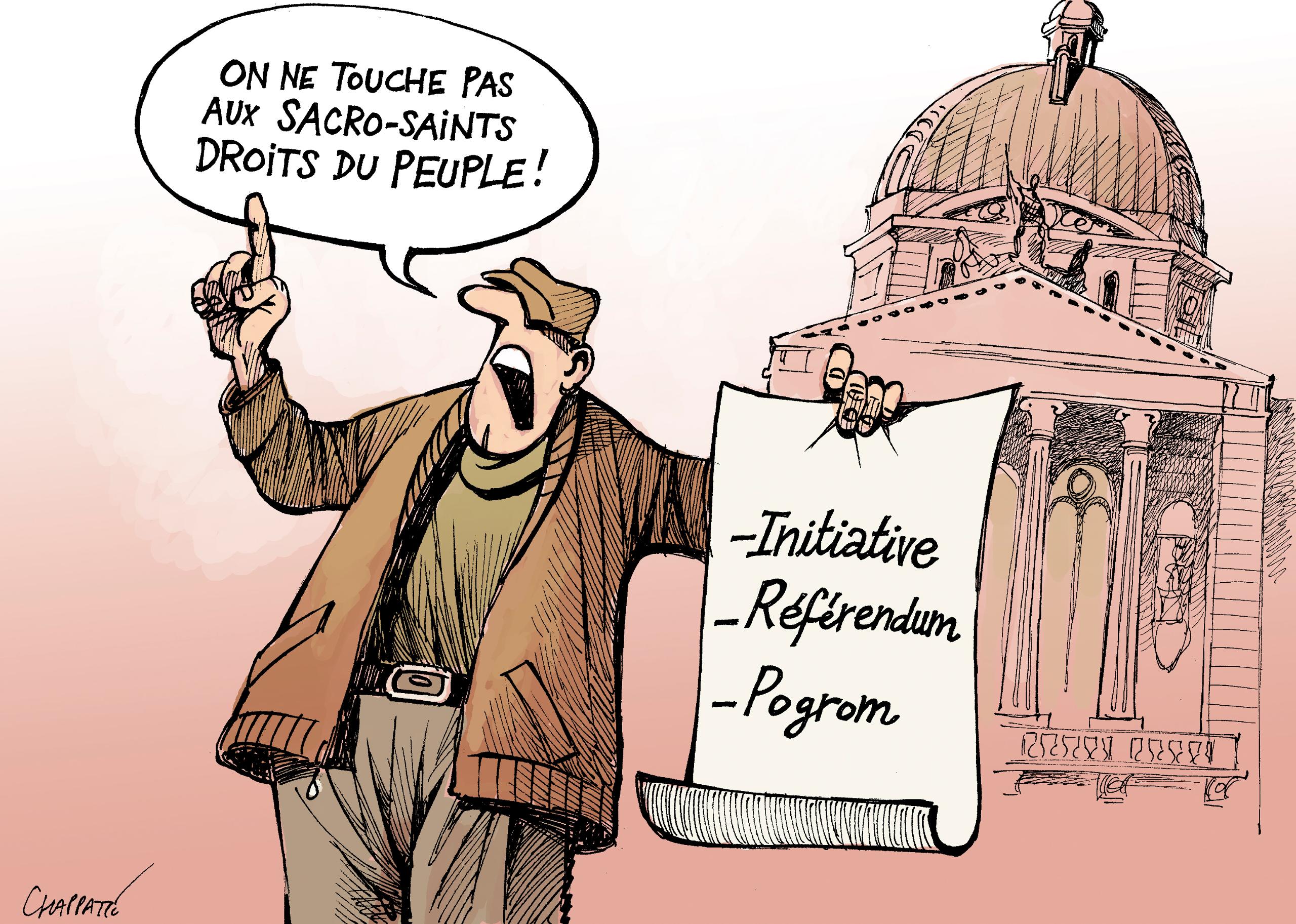
More
From pogroms to political initiatives
swissinfo.ch: Asterix and Obelix’s secret weapon was their magic potion. So for the Swiss is it direct democracy?
P.C.: Direct democracy is magnificent. That’s what you hear abroad. People are fascinated by it, especially nowadays when governments around the world are called into question.
swissinfo.ch: But critics say recent votes indicate direct democracy has lost its stabilising function and become irrational and populist. What do you think?
P.C.: Direct democracy is a system where the Swiss people wear the trousers. It’s pretty much the only country in the world where the authorities are directed by the population and sometimes fear them. We have an all-powerful sovereign power, which is capricious and sometimes a bit of a monomaniac – it’s called the Swiss people.
The Swiss are quite modest people, but sometimes they can say incredibly stupid things too. The problem with direct democracy is that over the past 15 years it’s become a weapon used by manipulators and populists. It’s become tiring to always vote on rejecting foreigners, for example.
swissinfo.ch: Direct democracy and populists must be profitable subjects for a political cartoonist like yourself though.
P.C. : I don’t get bored drawing all these Swiss clichés : cows, alpine landscapes, an armailli [traditional herdsman] and a ballot box.
I willingly use clichés, the same as the populists. The Swiss People’s Party and [party strongman] Christoph Blocher have been recounting the same myth for years: an alpine tale of a sovereign Switzerland exempt from all global responsibilities, always profiting from everything while remaining in the opposition.
swissinfo.ch : For many people direct democracy is something sacred. Are there any aspects you think should be improved?
P.C. : After the minaret vote [in 2009] I did a cartoon criticising the idea that the Swiss voters are always right with a guy saying direct democracy, the right to initiatives and referendums and the pogrom are sacrosanct for the Swiss. It was very provocative.
If you believe that the people are always right you just need to look at history to know that it has also resulted in abuses.
I think there are some issues that should not have been put to the vote. People sometimes end up saying so afterwards … this initiative did not comply with such and such … that’s a big problem.
I don’t want direct democracy to become something where people can let off steam and express different moods. We have to be a little bit more precise and rigorous in the votes that go to the ballot.
The majority should not have the possibility of discriminating or violating fundamental rights. That can happen. The minaret vote was a clear example where people didn’t vote on the issue and question posed. They voted symbolically about a feeling.
Another very shocking example is that of local citizens deciding the naturalisations of foreigners. A photo, a dozen lines about the person and whether you like them or not. Any Balkan-sounding name was rejected. It’s so violent and stupid. Direct democracy is sometimes like an internet forum. It’s the non-filtered, anonymous expression of people’s anger or mood.
swissinfo.ch: They were very controversial issues, but thousands of other votes regularly take place at local, cantonal and national levels which are not so divisive.
P.C.: It’s fantastic to see politics in action which doesn’t involve lots of little slogans like in France but long political arguments in Swiss German.
It’s great to see Switzerland’s studious enthusiasm, as people debate complex technical issues. You can spend an entire evening in such debates, while next door the French media are busy talking about the president and his mistress, and who said what in which political meeting.
That’s definitely a positive thing about direct democracy: the capacity of the Swiss to launch themselves into lengthy discussions … I wouldn’t say passionately, but sometimes with zeal. They are good students.
swissinfo.ch: What impact will the attack on the Charlie Hebdo magazine in Paris have on your work as a political cartoonist?
P.C.: We’ll keep on drawing like before and through our cartoons try to put an end to the world’s craziness. We’ll always seek to provoke debate and smiles. But from now on we’ll do this job with a dark shadow in the back of our minds and a heavy weight in our hearts. And for some people, it means much more worry. Innocence has been lost, forever.
Patrick Chappatte was born in 1967 in Pakistan to a Lebanese mother and a Swiss father. He was raised in Singapore and Geneva, and lived in New York from 1995 to 1998. He now lives between Los Angeles and Geneva with his family.
He currently contributes to The International New York Times, formerly known as The International Herald Tribune, and two Swiss dailies, Le Temps and Zurich’s Neue Zürcher Zeitung (NZZ).
Since 1995 he has worked in graphic journalism, or comics journalism, a genre of reporting using the techniques of graphic novels. His most recent stories covered the war in Gaza (2009), the slums of Nairobi (2010), gang violence in Central America (2012) and k-pop in South Korea (2013), which were published in several newspapers; one was turned into a short animated documentary in 2011.
He has collaborated with editorial cartoonists in conflict-ridden countries with the goal of promoting dialogue through cartooning. These projects focused on Serbia, Ivory Coast, Lebanon, Kenya and Guatemala. He has also published 16 books (including three cartoon stories). In 2012 he became the first non-American to receive the Thomas Nast Award, the most prestigious press prize in the US after the Pulitzer.

In compliance with the JTI standards
More: SWI swissinfo.ch certified by the Journalism Trust Initiative

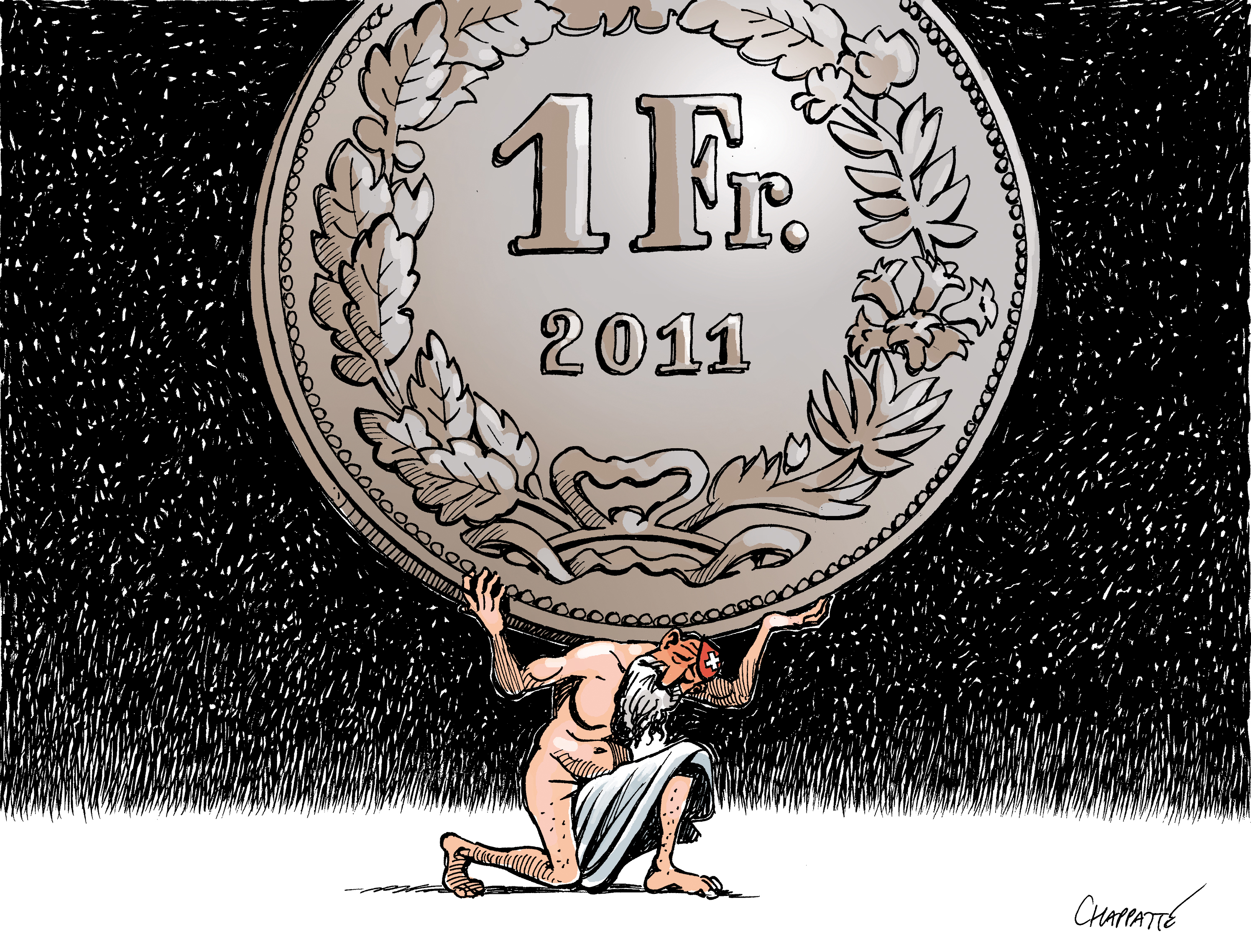
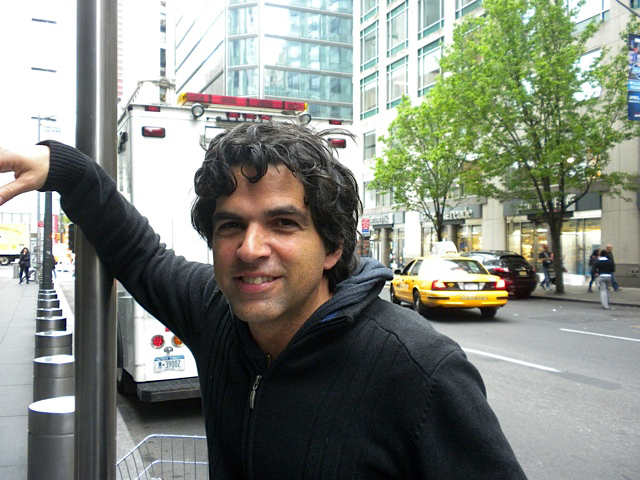
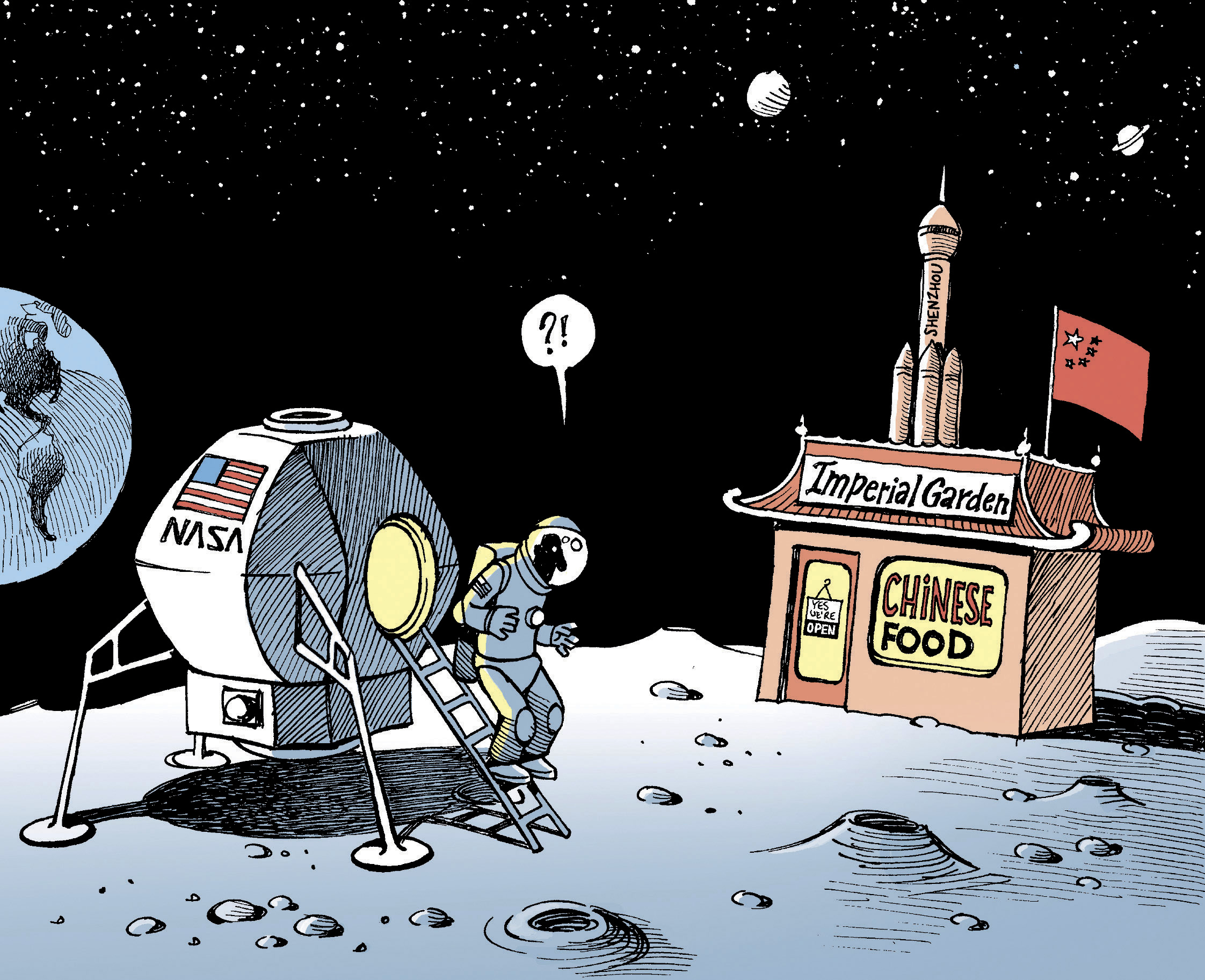
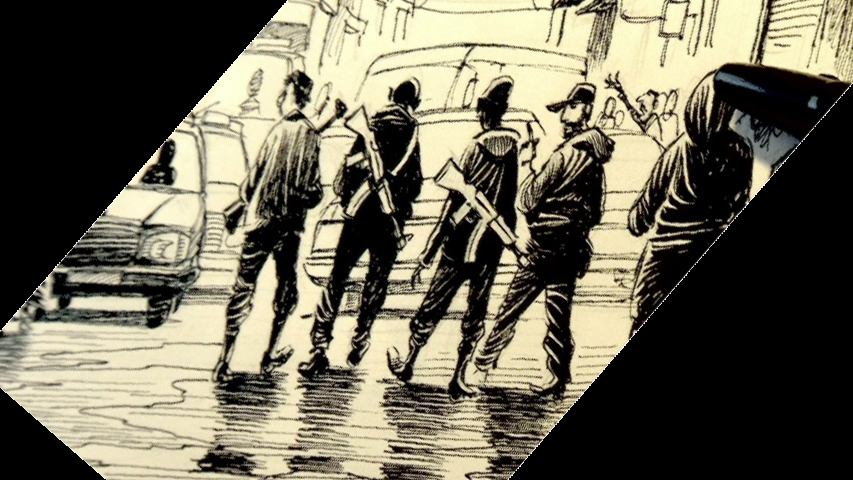

You can find an overview of ongoing debates with our journalists here. Please join us!
If you want to start a conversation about a topic raised in this article or want to report factual errors, email us at english@swissinfo.ch.